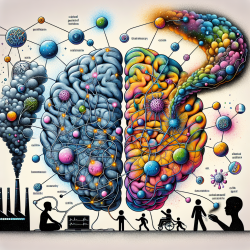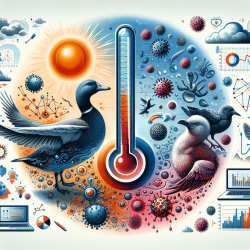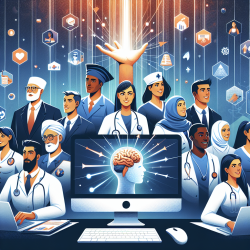In the rapidly evolving world of dietetics, personalised nutrition technologies are emerging as a transformative force. These technologies offer tailored dietary recommendations based on individual genetic, phenotypic, and lifestyle information. As highlighted in the research article "Personalised nutrition technologies: a new paradigm for dietetic practice and training in a digital transformation era" by Abrahams and Matusheski (2020), the integration of these technologies is reshaping how dietitians approach patient care.
The Shift Towards Personalised Nutrition
The traditional one-size-fits-all approach to nutrition is becoming obsolete as we gain deeper insights into how individual differences affect dietary needs. Personalised nutrition leverages advancements in genomics, metabolomics, and microbiomics to provide customized dietary advice. This shift is not only enhancing the effectiveness of dietary interventions but also fostering greater patient engagement and adherence.
Key Benefits of Personalised Nutrition Technologies
- Precision: By considering genetic and metabolic profiles, dietitians can offer more precise dietary recommendations that align with an individual's unique biology.
- Enhanced Engagement: Personalized plans are more likely to resonate with patients, increasing their motivation to adhere to dietary guidelines.
- Improved Outcomes: Tailored interventions can lead to better health outcomes by addressing specific nutritional deficiencies or metabolic concerns.
Implementing Personalised Nutrition in Practice
For practitioners looking to integrate personalised nutrition technologies into their practice, it is essential to stay informed about the latest research and tools available. The following steps can help dietitians effectively adopt these innovations:
- Continuous Education: Attend webinars, conferences, and workshops focused on personalised nutrition to stay updated on the latest advancements.
- Utilize Digital Tools: Incorporate mobile health (mHealth) applications that facilitate data collection and analysis for personalized dietary planning.
- Collaborate with Experts: Work alongside geneticists and bioinformaticians to interpret complex data and refine nutritional recommendations.
- Patient-Centered Approach: Engage patients in discussions about their preferences and lifestyle to tailor interventions effectively.
The Role of Training in Digital Transformation
The transition towards personalised nutrition necessitates a shift in dietetic training programs. Future practitioners must be equipped with skills in digital literacy and data interpretation. Training curricula should incorporate modules on genomics, data analytics, and the use of digital health tools. This will ensure that upcoming dietitians are prepared to navigate the complexities of personalised nutrition.
The Future of Dietetic Practice
The integration of personalised nutrition technologies represents a significant advancement in dietetic practice. As these technologies continue to evolve, they promise to enhance the precision and effectiveness of nutritional interventions. By embracing this digital transformation, dietitians can play a pivotal role in promoting health and well-being through tailored dietary strategies.
To read the original research paper, please follow this link: Personalised nutrition technologies: a new paradigm for dietetic practice and training in a digital transformation era.










